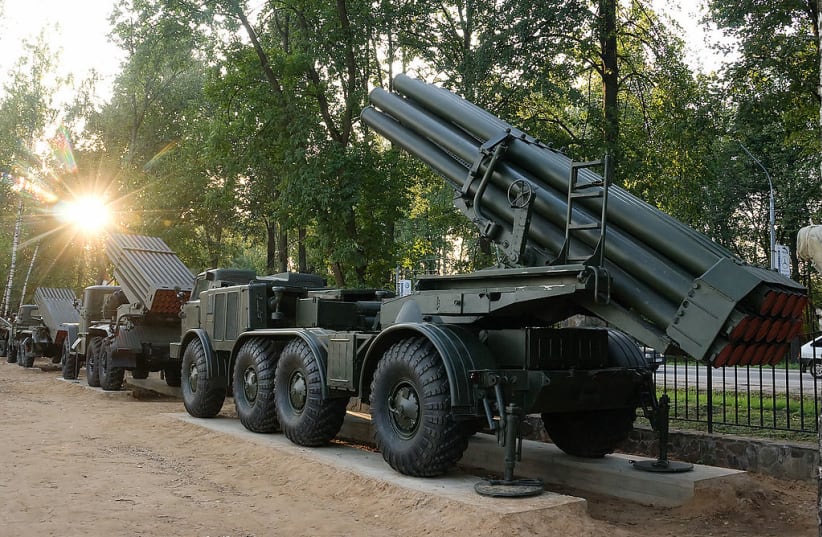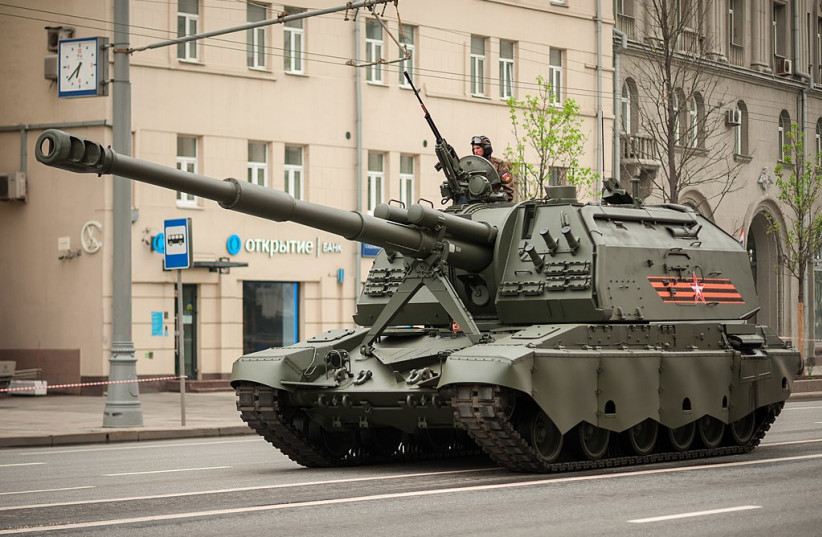The Russian military is being forced to increasingly rely on outdated Soviet-made equipment in its ongoing invasion of Ukraine, pulling out weapons that have been in storage since the 1970s, the Ukrainian Intelligence Directorate (GUR) claimed last Thursday.
In particular, the majority of old Soviet-era equipment seems to be meant to shore up Russian artillery and missile capabilities.
In April alone, hundreds of weapons were taken out of storage from Russia's Main Missile and Artillery Directorate (GRAU) for this purpose, including Msta-S anti-aircraft guns, Hurricane Multiple Launch Rocket Systems (MLRSs) and more.
These reports come following numerous prior reports of Russia being forced to find means of making up for losses in Ukraine, as well as other ongoing issues.
As of Sunday, Russia has so far lost 21,800 soldiers in their ongoing invasion, as well as 191 drones, 147 MLRSs, 69 air defense systems, 408 artillery pieces, 873 tanks, 154 helicopters, 179 aircraft, 2,238 armored vehicles, eight ships, 76 fuel trucks and 1,557 other vehicles, according to the General Staff of the Ukrainian Armed Forces.
However, logistical issues, corruption, foreign sanctions and import restrictions have reportedly severely hampered Russia's ability to resupply.
At least one Russian facility responsible for the production of surface-to-air missiles (SAMs) has been shut down because, as noted by employees, "almost nothing Russian" is used during the critical state of production when electronic components are used, the GUR reported.
Most of the Russian military's electronic components were provided by Germany, but this has stopped due to the sanctions.
the GUR reported that Russia is struggling to produce more tanks for its military due to crippling financial sanctions and import restrictions.
The Russian firm UralVagonZavod, located in Nizhny Tagil in the Sverdlovsk Oblast, is the world's largest main battle tank manufacturer and is responsible for producing T-90s and T-72s, as well as the next-generation T-14 Armata tank.
Earlier in April, the GUR reported that some Russian shipyards are unable to construct warships or conduct maintenance on vessels due to financial hardships and a lack of foreign components.
In particular, a Vladivostok shipyard was allegedly unable to meet 25 billion rubles ($335 million) worth of government orders to build two tankers and two missile boats, and to maintain and repair other vessels.
"It is obvious that the Russian military-industrial complex remains dependent on imported high technologies," wrote GUR at the time, "without the supply of which Russia is unable to continue production of modern weapons."
Even using older equipment has become an issue, as attempts to restore old equipment in storage into fighting shape are struggling due to corruption and poor equipment condition.
The Ukrainian Intelligence Directorate alleged that corruption had been a major reason for the "extremely unsatisfactory" condition of the equipment being taken out of storage.
"Optical devices and electronics containing precious metals were stolen from the combat vehicles," said GUR. The intelligence body reported that many of the 4th Tank Division's stored tanks were "completely dismantled," and that some did not have engines.
The Ukrainian military added that corruption was impacting Russian troops stationed in Belarus and that soldiers had sold fuel and provisions, or exchanged military equipment for alcohol.
GUR also noted at the time that there were other challenges besides corruption hindering Russia's restoration of old equipment, and that "in general, the Russian Federation often faces the problem of the impossibility of restoring equipment after 'deconservation' from warehouses."
Corruption in the Russian defense establishment has also played a role in the development of munitions. According to Politico in 2012, a Russian arms company embezzled millions of dollars meant for a missile interception system. In 2016, another company embezzled funds for navigation and control systems for high-precision ammunition.

